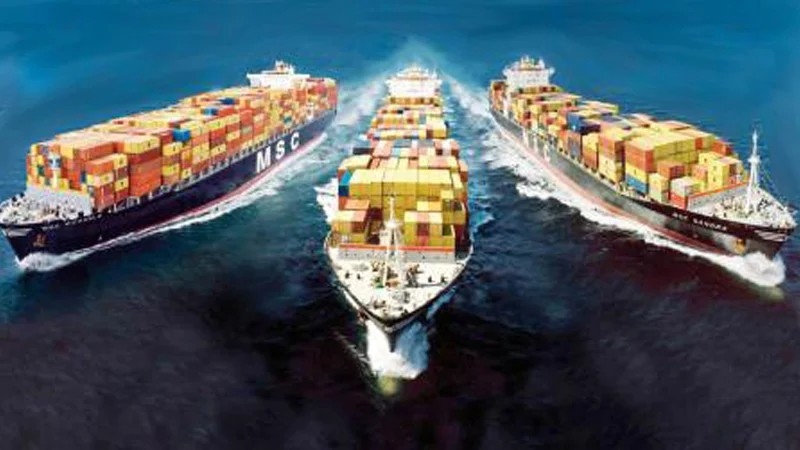Growing Tensions Affecting Sea Trade
The ongoing conflict between Iran and Israel is now threatening global maritime trade. One of the world’s largest oil tanker companies, Frontline, has decided to avoid sending new ships through the Gulf via the Strait of Hormuz due to safety risks. Ship owners are now trying to avoid this important waterway.
Why Hormuz Strait Matters for Bangladesh
The Strait of Hormuz is a key route for shipping goods from Bangladesh to Europe and the US, especially garments. Container ships from Chattogram port use this route, but now they are facing challenges. Oil shipments from Bangladesh are also being affected.
Almost 25% of the world’s oil and one-third of its liquefied natural gas are transported through this route. Container ships using Dubai’s Jebel Ali Port also pass through here, which is another major export point for Bangladeshi goods to the Middle East.
Read More: Israel strikes Iranian fuel aircraft from 2,300 km away at Mashhad Airport
Frontline’s CEO Speaks Out
Lars Barstad, CEO of Frontline, told international media that very few ship owners are now willing to take contracts for voyages into the Gulf region. “We are not entering new agreements to go into the Gulf,” he said. Ships that are already in the area are being escorted out by international naval forces with enhanced security.
Impact on Chattogram Port
Former Chattogram Port Board member Jafar Alam said, “Many export ships from Bangladesh use this route to reach Europe and the US. The current conflict is disrupting these journeys, and it will affect Chattogram Port. When this port is affected, the whole country feels it.”
Higher Costs and Insurance Worries
Khairul Alam Sujon, vice-president of the Bangladesh Freight Forwarders Association, said that if the Hormuz Strait is blocked, it will signal major trouble for sea trade. “Shipping costs will rise sharply. Insurance premiums will also increase.”
He also mentioned that while the US and EU are Bangladesh’s main garment markets, exports to Middle Eastern countries like the UAE and Saudi Arabia are growing fast. In fact, exports to these two countries rose by 40% last year.
Searching for Alternate Routes
Shipping companies are now considering alternate routes such as the Red Sea and the Arabian Sea. But these paths are not without risks, and taking longer routes will increase fuel and insurance costs.
Captain Anam Chowdhury, president of the Bangladesh Merchant Marine Officers’ Association, explained that when Houthi attacks started in the Red Sea in late 2023, many large shipping companies avoided the Suez Canal and took the long route around the Cape of Good Hope in South Africa. At that time, insurance costs for transporting goods via the Red Sea went up by 20%. If Hormuz gets blocked, these costs may increase even more.
Past Incidents Raise Concerns
Businessmen fear that Iran may try to pressure the global community by unofficially blocking the Strait of Hormuz. For example, in April 2024, Iran’s Revolutionary Guard seized a container ship called MSC Aries near the strait. The ship was owned by Gortal Shipping, linked to Israel’s Zodiac Maritime.
Shipping and Oil Import Costs to Rise
The back-and-forth attacks between Iran and Israel may severely impact Bangladesh’s oil imports. Global oil prices have already increased by more than 7%.
Shafiqul Alam Jewel, vice-chairman of the Bangladesh Shipping Agents Association, said that if Hormuz is closed, ships will have to take longer routes. “This will naturally raise the shipping costs significantly, especially for Bangladesh’s garment exports to Europe and America,” he said.
Fuel Prices May Increase in Bangladesh
Bangladesh Petroleum Corporation (BPC) has said that rising international oil prices will affect local prices as well. BPC Chairman Md. Amin Ul Ahsan explained, “We adjust prices based on international markets. We set the price monthly, averaging the global rates. As prices are rising, we will have to set a new price, but we cannot say how much it will rise yet.”
Oil prices in the global market have already gone up. As of yesterday, the price of Brent crude oil futures rose by 9.7% or $6.29, reaching $75.65 per barrel. At one point, it touched $78.50 per barrel – the highest since January 27.
Source: Samakal
Share via:
















